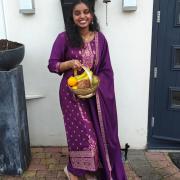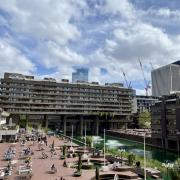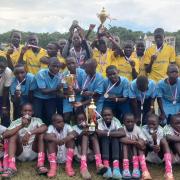
There has been many controversial stories in the media today of young people interfering in worldwide affairs. Many people suggest the younger generation don’t fully understand the topics they so passionately speak up for, such as climate change strikes and their oppositions. However, is there a more beneficial way for them to show their understanding of serious world affairs?
Introducing … International Model United Nations, an entertaining, intellectual and engaging extra co-curricular activity with increasing popularity due to its many different opportunities. MUN provides an opportunity for students to represent a nominated country and passionately debate serious topics that effect its global position and internal problems. Set in a captivating conference environment, it helps students improve social skills, confidence, and teamwork, whilst also giving them the chance to prove their knowledge and be listened to. This lively event refreshingly shows the next generation’s growing interest to talk professionally about politics and global problems. Many schools, not just in England, but worldwide give students the opportunity to take part in such a beneficial event. On 18th October numerous schools from around the world came together for one immense conference hosted at Royal Russel School in Croydon England which lasted until the 23rd of October.
The international MUN conference is arguably one the best highlights of the school year. It is student lead and run, and there are lots of occasions to meet new people and make new friends. This year there were schools from the USA, Northern Ireland, Japan, Spain to name a few. However, there are so many more aspects of MUN that are just as important as taking part as a delegate and provide different opportunities to get involved. For example, behind the scenes are the press, secretariat, leadership team and media. While interviewing some of these students, I asked their opinions on their experiences of MUN, to which Luke McKabe (delegate) who “represented Uganda” answered that he was able to be educated on and debate “child marriages as Uganda has strong views on that topic and child brides is a big problem”, he also expressed that MUN is important as “it helps [youths] to understand the world around us”. I also took some time to get the views of students in different teams, where Roseanna Ray (secretariat) mentioned that she thought MUN “is important for the delegates to be educated on all international affairs and politics.”
This year, I was fortunate enough to take part as one of the media team members and can positively say that it was one of best experiences that school has offered me and I encourage more people to take part. While filming, I was able to watch some conferences and gained considerable amounts of understanding of world issues, and ideas youths have to solve them. I was able to realise just how important this great conference is, along with it being just as enjoyable. I now urge people to not underestimate the knowledge of the next generation and hope that their voices become more validated in today’s society.
Ellie Baker



























